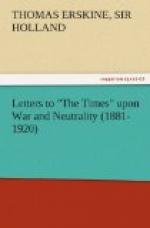We face at this moment a most important question—that of the future relations of the United States and Cuba. With our near neighbors we must remain close friends. The declaration of the purposes of this Government in the resolution of April 20, 1898, must be made good. Ever since the evacuation of the island by the army of Spain the Executive, with all practicable speed, has been assisting its people in the successive steps necessary to the establishment of a free and independent government prepared to assume and perform the obligations of international law which now rest upon the United States under the treaty of Paris. The convention elected by the people to frame a constitution is approaching the completion of its labors. The transfer of American control to the new government is of such great importance, involving an obligation resulting from our intervention and the treaty of peace, that I am glad to be advised by the recent act of Congress of the policy which the legislative branch of the Government deems essential to the best interests of Cuba and the United States. The principles which led to our intervention require that the fundamental law upon which the new government rests should be adapted to secure a government capable of performing the duties and discharging the functions of a separate nation, of observing its international obligations of protecting life and property, insuring order, safety, and liberty, and conforming to the established and historical policy of the United States in its relation to Cuba.
The peace which we are pledged to leave to the Cuban people must carry with it the guaranties of permanence. We became sponsors for the pacification of the island, and we remain accountable to the Cubans, no less than to our own country and people, for the reconstruction of Cuba as a free commonwealth on abiding foundations of right, justice, liberty, and assured order. Our enfranchisement of the people will not be completed until free Cuba shall “be a reality, not a name; a perfect entity, not a hasty experiment bearing within itself the elements of failure.”
While the treaty of peace with Spain was ratified on the 6th of February, 1899, and ratifications were exchanged nearly two years ago, the Congress has indicated no form of government for the Philippine Islands. It has, however, provided an army to enable the Executive to suppress insurrection, restore peace, give security to the inhabitants, and establish the authority of the United States throughout the archipelago. It has authorized the organization of native troops as auxiliary to the regular force. It has been advised from time to time of the acts of the military and naval officers in the islands, of my action in appointing civil commissions, of the instructions with which they were charged, of their duties and powers, of their recommendations, and of their several acts under executive commission, together with the very complete general information they have submitted.




